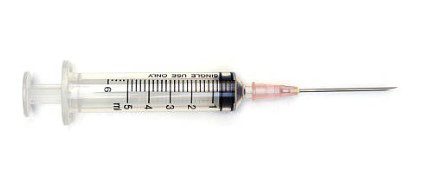

Anesthetic allergy in dogs is an hypersensitivity to any medications used during anesthesia. Symptoms can include skin reactions such as hives or swelling, difficulty breathing, and even shock. Other symptoms can include vomiting and extreme lethargy. It is important to keep an eye on your pet’s reactions after surgery and seek professional help if any of these symptoms occur.
Anesthetic allergy in dogs is caused by an hypersensitive immune system reaction to the drugs used during anesthesia. When a dog is exposed to such drugs, their immune system may falsely identify it as a threat and launch an immune response against these drugs, such as releasing histamines which causes the symptoms of an allergy. This can happen from a single exposure or after multiple exposures over time.
Anesthetic allergy in dogs is diagnosed by assessing the pet’s symptoms and by ruling out other possible causes. Blood tests or skin tests may be done to confirm the diagnosis and to identify which type of medication is causing the allergic reaction. In some cases, a trial and error procedure is used in order to find the right anesthetic.
Anesthetic allergy in dogs is a serious reaction and can be life threatening if not treated in a timely manner. Mild cases can be treated with antihistamines, while more severe cases can require treatment with steroids or subcutaneous fluids. If the allergy continues to go untreated, it can result in death due to shock, difficulty breathing, or several other complications. The mortality rate for untreated cases is considered to be quite high.
Anesthetic allergy in dogs is typically treated with steroid medications and avoidance of any drugs or substances that triggered the reaction, as well as monitoring for any further reactions. If your pet experiences any allergy symptoms, it is important to seek professional help as soon as possible. If the allergy is severe, antihistamines may be prescribed to reduce the risk of anaphylactic shock. If the allergy is less severe and can be managed with avoidance of the allergen, lifestyle modifications may be recommended, such as keeping your pet away from other animals that could potentially spread the allergens, making sure the environment is clean, and other methods of avoiding an allergic reaction.
Prevention methods for anesthetic allergy in dogs can include prior testing for sensitivity to the drugs that will be used during the anesthesia. In addition, antihistamines or corticosteroid injections can be given prior to surgery to minimize the potential for an adverse reaction. Moreover, it is important for pet owners to keep an eye on their pet’s reactions after surgery and to call their veterinarian if any abnormal symptoms occur. Additionally, using more natural forms of anesthesia or using other forms of sedation may be recommended for pets prone to allergies.
Anesthetic allergy in dogs is not contagious, so it cannot affect humans directly. However, if an anesthetic containing the allergy-causing ingredient is used on a person, they may also begin to show some of the same reactions and symptoms as their pet. Therefore, it is important to make sure a medical professional is aware of any anesthetic allergies you or your pet may have when any medical or surgical procedures are being performed.
There are no home remedies that can be used to manage anesthetic allergy; however, some pet owners have reported that probiotics can help reduce allergic reactions. Additionally, it is important to discuss the use of pre-medication before surgery with your vet, as this can help reduce the severity of any reactions.
It is important to remember that these remedies are not a guaranteed solution for anesthetic allergy and that it is best to always consult with your veterinarian for the most effective and safe treatments. Working together with your vet will ensure your pup’s continued health and well-being.
Certain breeds of dogs are more susceptible to anesthetic allergies than others. These include Greyhounds, Bulldogs, Labrador Retrievers, Boxers, and Dalmatians. Other breeds such as Chihuahuas, Affenpinschers, Bichon Frises, Poodles, and Shih Tzus may also be more vulnerable to having an anesthetic allergy. It is therefore important to discuss with your veterinarian before any sedative or anesthetic drug is administered to any of these breeds of dogs.
Has your dog ever experienced an anesthetic allergy? If so, what was their response? How did you feel and how did you manage the process? No matter the circumstance, it can be incredibly difficult to watch your pet suffer from any sort of illness, so be sure to take the best possible care of your pet during and after the healing process. At the end of it all, the goal is to ensure your pet is happy and healthy. Wishing you and your pet a safe and speedy recovery!